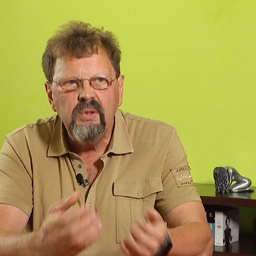Paul Tammerti süüdistati
keelatud majandustegevuses
ja
tegevusloata tervishoiuteenuse osutamises
. Ta pakkus inimestele raha eest seadet, mis võimaldas vabasurma minna. Maa- ja ringkonnakohus leidsid Tammerti süüdi.
keelatud majandustegevuses
Tõlge fraasile: keelatud majandustegevuses
EN
in prohibited economic activity
tegevusloata tervishoiuteenuse osutamises
Tõlge fraasile: tegevusloata tervishoiuteenuse osutamises
EN
providing healthcare services without a license
Riigikohus selgitas, et vabasurma abistamine ei ole tervishoiuteenus. Tammert ei teinud
haiguste ennetamist, diagnoosimist ega ravi
. Ta ei teinud arstiteaduslikke uuringuid ega mõjutanud inimeste tervist pöördumatult. Inimesed ise otsustasid oma tervise üle, ütles kohus.
haiguste ennetamist, diagnoosimist ega ravi
Tõlge fraasile: haiguste ennetamist, diagnoosimist ega ravi
EN
prevention, diagnosis, or treatment of diseases
Riigikohus rõhutas, et Tammerti tegevusel polnud tervishoiuteenuse eesmärki. Seadus ei luba nimetada raviks tegevust, mis tervist kahjustab. Surma esilekutsumine ei ole seega tervishoiuteenus.
Riigikohus märkis, et igal arusaamisvõimelisel inimesel on
õigus elust lahkuda
. Karistus saab olla ainult siis, kui inimene ei suuda ise otsustada või tal pole täielikku arusaamist oma tegudest.
õigus elust lahkuda
Tõlge fraasile: õigus elust lahkuda
EN
right to end one's life
Riigikohus rõhutas ka, et vabasurma abistamisele
puuduvad seaduslikud reeglid
. Selged reeglid on vajalikud, et
vältida kuritarvitust
ja
tagada inimese tervise kaitse
.
puuduvad seaduslikud reeglid
Tõlge fraasile: puuduvad seaduslikud reeglid
EN
there are no legal rules
vältida kuritarvitust
Tõlge fraasile: vältida kuritarvitust
EN
avoid misuse
tagada inimese tervise kaitse
Tõlge fraasile: tagada inimese tervise kaitse
EN
ensure the protection of human health
Riigikohus viitas ka Euroopa Inimõiguste Kohtu praktikale, mis nõuab abistatud surmaga seotud
tugevat õiguslikku regulatsiooni
. Riik peab tagama, et sellise teenuse osutamine oleks ohutu ja korralikult reguleeritud.
tugevat õiguslikku regulatsiooni
Tõlge fraasile: tugevat õiguslikku regulatsiooni
EN
strong legal regulation
Paul Tammert was accused of prohibited economic activity and providing healthcare services without a license. He offered people a device for money that allowed them to commit suicide. The district and circuit courts found Tammert guilty.
The Supreme Court explained that assisting in suicide is not a healthcare service. Tammert did not engage in disease prevention, diagnosis, or treatment. He did not conduct medical research or irreversibly affect people's health. People themselves decided about their health, the court said.
The Supreme Court emphasized that Tammert's activities did not have the purpose of healthcare services. The law does not allow calling an activity that harms health a treatment. Therefore, inducing death is not a healthcare service.
The Supreme Court noted that every mentally competent person has the right to leave life. Punishment can only be applied if a person is unable to make their own decision or does not have full understanding of their actions.
The Supreme Court also emphasized that there are no legal rules for assisted suicide. Clear rules are needed to prevent abuse and ensure the protection of human health.
The Supreme Court also referred to the practice of the European Court of Human Rights, which requires strong legal regulation related to assisted death. The state must ensure that the provision of such a service is safe and properly regulated.

